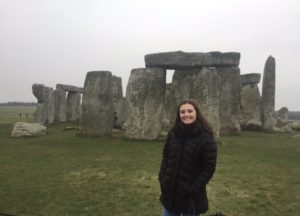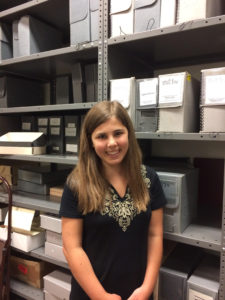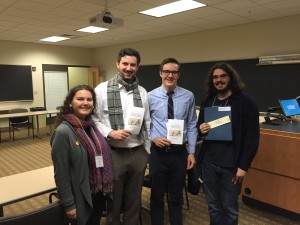“Created by the Department of History to identify particularly impressive history majors and offer them an intensive introduction to research and writing history papers,” the History Department’s Mannion Society invites students to join in their sophomore or junior year. By their senior year, therefore, Mannion Society members have had extensive training and supervision assisting them with their final projects. We reached out to graduating members of the Society to ask them about their projects. Here’s what they said:
James Berrigan

James Berrigan
My project explored the ramifications of the introduction of the Stinger missile by the United States government to the mujahidin during the Soviet-Afghan War. During the war, the United States ran the largest covert operation in history, supplying the mujahidin with weapons with which to fight the Soviets. I argue that the introduction of the Stinger missile was the turning point in the war, as it had a great impact militarily, psychologically, and diplomatically. The Stinger allowed the mujahidin to effectively counter Soviet aerial attacks, punctured the Soviet aura of invincibility, and, most importantly, ended American plausible deniability. The Stinger proved American involvement in the war, which could have provoked an extreme Soviet response. The Stinger missile changed the course of the war, and marked a departure from conventional Cold War tactics regarding plausible deniability.
Melanie Sheehan

Melanie Sheehan
My research seeks to understand how the AFL-CIO’s power in Congress diminished during the Nixon administration. I explore this question by examining the differences between the union’s successful lobbying campaign against the Supreme Court nominations of Clement Haynsworth and G. Harrold Carswell Court in 1969 and 1970 and the organization’s failure to block the nomination of William Rehnquist in 1971. I contend that the Rehnquist proceedings reflect larger social changes that split the AFL-CIO from its allies and discredited the organization’s testimony against Rehnquist. While the AFL-CIO criticized the conservative stances of Haynsworth, Carswell, and Rehnquist on civil rights, its opposition to the Philadelphia Plan and its failure to address affiliates’ discriminatory practices undermined the AFL-CIO’s relationship with the NAACP. Further, the apparent contradiction between the organization’s avowed stances and its own pervasive discrimination opened the organization’s testimony to criticisms, which the union could not deflect without NAACP support. In addition, the law and order issue, largely absent in the Haynsworth and Carswell hearings, predominated the Rehnquist proceedings. The AFL-CIO condemned Rehnquist’s conservative stances on such civil liberties issues as wiretapping and the right to protest. However, the union’s arguments seemed to contradict the average worker’s growing concerns about crime, particularly as Nixon deliberately tied the issue with the rise of the New Left to divide the working class from the Democrats. Meanwhile, as radical antiwar elements gained influence in the Democratic Party, the AFL-CIO chose to abandon the party rather than promote compromise reforms. AFL-CIO leaders thus became more closely tied to the Nixon administration and offered their full-fledged support for the president’s decision to invade Cambodia. During the Rehnquist proceedings, then, former allies such as Americans for Democratic Action lost credibility by adopting unpopular stances regarding civil liberties issues, while the AFL-CIO’s condemnation of Rehnquist’s law and order views and his support for expanded executive power were, like its civil rights testimony, dismissed as illegitimate.
Cristina Iannarino

Cristina Iannarino
“The Golden Apple: Pietro Andrea Mattioli’s Influence on the Usage of the Tomato in Renaissance Italy,” tells the story of the Sienese herbalist and physician, Pietro Andrea Mattioli. In 1544, Mattoli published his seminal work, I discorsi. This groundbreaking herbal included the first description of the tomato in European literature. Its subsequent editions (the 1554 updated edition in particular) included the first European name for the tomato, pomi d’oro, and a detailed illustration of the plant, which reflected its increased cultivated in the Italian peninsula in the decade between the initial publication and the updated edition. Mistakenly believed to be a relation of the controversial mandrake, the tomato was generally condemned or ignored by Europeans. An extended research project for the Mannion Society, this research demonstrates the mutability of culture and the invaluableness of Mattioli’s writing; it was this audacious herbalist who, against convention, encouraged the usage of the tomato as a culinary ingredient. As a result of Mattioli’s influence, European herbalists, botanists, and physicians from John Gerard to Rembert Dodoens echoed Mattioli’s observations that would dominate herbal literature in almost every major European language for centuries. As a result, the tomato’s association with Italians overshadowed the tomato’s true colonial origins, cementing the tomato’s exalted position in the Mediterranean diet and Italian cuisine.
Congratulations to our Seniors on their original and fascinating projects!










